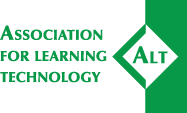Bates, Simon and Hardy, Judy and Haywood, Jeff and Haywood, Denise and McLeod, Hamish and Paterson, Jessie and Rhind, Susan (2009) Taking the lead: learners’ experiences across the disciplines. In: ALT-C 2009 "In dreams begins responsibility" - choice, evidence and change, 8 - 10 September 2009, Manchester.
|
PDF
- Published Version
Available under License Creative Commons Attribution Non-commercial No Derivatives. Download (100kB) | Preview |
Abstract
The first year at university is a time of significant flux for students, as they adjust to unfamiliar environments, encounter new approaches to teaching and develop fresh learning strategies on the road to becoming self-directed learners. This sense of uncertainty may be compounded by the need to interact with unfamiliar and frequently complex online systems and technologies, possibly even before arrival. Furthermore, although technology is embedded seamlessly into the personal lives of many of today’s students, recent reports have questioned the widespread assumption that young adults have the sophisticated information skills and digital literacy needed to become autonomous learners. In this paper we present findings from a recently-completed study addressing these important issues. We investigated the utilisation of ICT and learning technologies by first-year undergraduates from a variety of different entry routes and academic disciplines, including Physics, Divinity and Veterinary Medicine, at the University of Edinburgh. The focus of the work was on the impact of technology on students’ transition to university and how this changed as they progressed through their first year. The overall shape of the research was based on a student-centred approach, with students’ own views and opinions placed central to the study; and used a holistic approach in which students’ use of e-learning and technology was set within the context of their learning experiences as a whole. To capture the breadth and complexity of their experiences we used a mixed-mode approach, including a series of reflective diaries recorded by learners (in video, audio or text format) together with surveys and focus groups. Students do not form a homogenous group, and findings in this area are inevitably complex. They have high expectations and are generally confident with technology; however, they may not always recognise technology’s potential to support and enhance learning. The term e-learning does not mean much to them; there is simply learning with strands of technology running through. This is reflected in a strong desire for face-to-face contact, with technology used to supplement and enhance this. Students are social, with informal group learning often facilitated by technology. They find their comfort zones and ways of working that are personal to them, and use technology to suit their own way of learning.
| Item Type: | Conference or Workshop Item (Paper) |
|---|---|
| Subjects: | T Technology > T Technology (General) L Education > L Education (General) |
| Divisions: | ALT-C Conference > ALT-C 2009 |
| Depositing User: | Miss M Jones |
| Date Deposited: | 20 Aug 2009 14:28 |
| Last Modified: | 04 Apr 2011 09:04 |
| URI: | http://repository.alt.ac.uk/id/eprint/636 |
Actions (login required)
 |
View Item |
